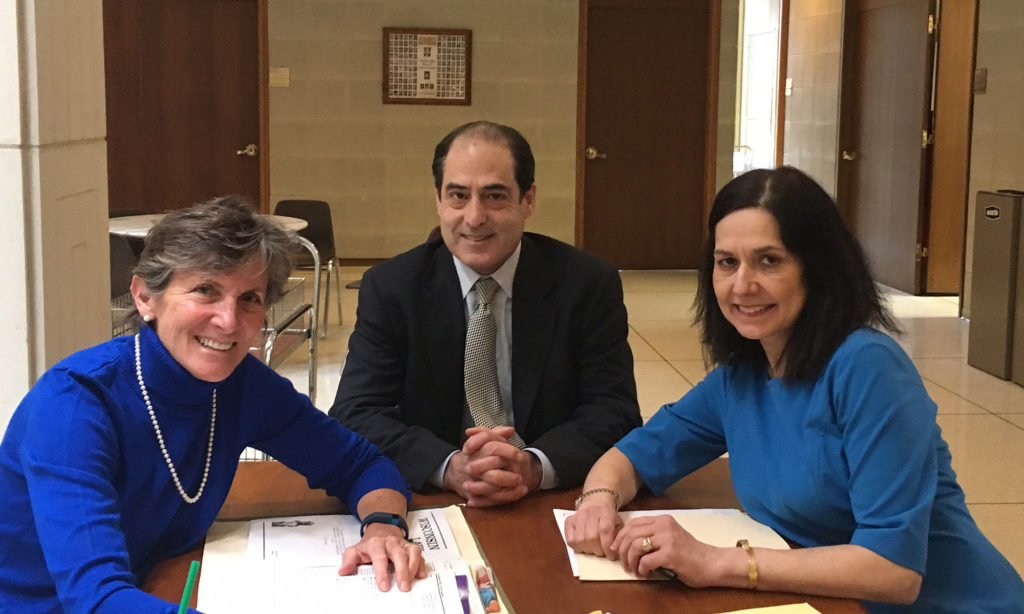After struggling under the weight of a generational scandal of harboring pedophile priests at the expense of those most vulnerable of churchgoers, pre-adolescent children, one would have hoped the Vatican would not now adopt a callous policy to that equally vulnerable class: the dying and terminally ill. Unfortunately, the Church’s recent letter here “Samaritanus bonus” of the Congregation for the Doctrine of the Faith slams the door on those believers who wish to leave this world in the blessed grace of their church’s Sacraments: confession, communion, last rites, penance, absolution, anointment. The Letter does not mince words: opting for MAID, or “assisted suicide” as the Letter irresponsibly calls the process, and euthanasia, are on par with abortion, and even murder. “[E]uthanasia is a crime against human life because one chooses directly to cause the death of another innocent human being… [It] therefore is an intrinsically evil act, in every situation or circumstance.” While euthanasia is nowhere legal in the US, Medical Aid in Dying is legal in 10 US jurisdictions and at least 5 foreign countries. Nevertheless, the Vatican categorizes MAID as “illegal” a statement clearly contrary to fact. “Assisting in a suicide is an unjustified collaboration in an unlawful act that contradicts the theological relationship with God…” One will search in vain for the passage in Scripture which in fact prohibits either suicide, euthanasia, or “assisted suicide”.
One may wonder why the Church in September 2020 would pronounce such a sullen and demeaning encyclical, condemning those most in need of help and consideration to dying without the blessings of their Church, at a moment when they are most in need of spiritual support, not self righteous condemnation. The timing may be more than fortuitous. In Europe, the only countries which have legalized euthanasia and MAID are BeNeLux and Switzerland. However, Spain, a traditionally Catholic country, a Mediterranean country, a Latin country seems on the verge of voting to legalise MAID and euthanasia, as a bill is before the Senate. The Encyclical makes clear the theological ramifications for any Spanish legislator voting to approve the change: “[I]t is gravely unjust to enact laws that legalize euthanasia or justify and support suicide…” The threat could not be clearer to any Church-going Spanish legislator: vote for this law at your religious and political peril. You may be denied the sacraments because you are accomplices to a great crime. The separation of Church and State, so embedded in Western values, is under attack.
The logic of the Encyclical is baffling. On the one hand, we are told that euthanasia is the ‘killing of an ‘innocent’ person, the implication being that the deceased was unwilling. But then quickly the Church acknowledges the justification for euthanasia is that it occurs at the behest of the terminally ill person. Yet, the Church argues, the terminally ill does not have the right to make that choice. Only God does. And so euthanasia is the interruption of human life before its “natural conclusion”. Now, one can wonder is it really life’s natural conclusion when a person is attached to man-made machinery, tubes protruding from a person’s orifices, enclosed in a ventilator, relying on a pacemaker, a heart or lung transplant, dialysis, etc. Can one not equally argue that this is the willful interruption of God’s plan for our natural life. When a person is revived from cardiac arrest by CPR is that not retrieving a person from the fate that God imposed?
Many might scoff at the importance of a mere Letter, even endorsed by His Holiness Pope Francis. Yet the letter has extreme significance in America. The letter makes clear that Catholic affiliated hospitals and Catholic healthcare workers may not participate in facilitating euthanasia or MAID. Keep in mind, that some half of all US hospitals are Catholic owned or run, and that there are any number of healthcare workers (doctors, nurse practitioners, nurses) who are practicing Catholics, and the impact of this prohibition can be profound. It is already difficult in MAID states to find 2 doctors willing to certify a patient’s eligibility for MAID. This is the heavy hand of the Church. Imagine now if every Catholic doctor, or health care worker had to take themselves off-side when a terminal patient asks for help.
This Letter also clarifies the Church’s opposition to VSED-Voluntary Stopping of Eating and Drinking, in which a terminally ill person refuses hydration and nutrition until expiring, a process which lasts from 7-15 days, and which entails no necessary third party assistance or intervention. Nevertheless, the Church finds this practice equally objectionable… because it entails an individual making a choice about their own End of Life timing.
To those begging for release from terminal and intolerable suffering, the Church’s response seems summarized as “Tough!” It is the job of the caregiver to attend to that suffering person and convince them of the beauty of their torture. Those who beg for euthanasia are simply confused. “The pleas of gravely ill people who sometimes ask for death are not to be understood as implying a true desire for euthanasia… What a sick person needs, besides medical care, is love, the human and supernatural warmth.” There we go, the Letter seems to suggest. All that screaming and wallowing, it’s just a ploy for love and attention. That person doesn’t really want to end the indignity of being terminal, incontinent, immobilized, in constant agony–no, just give them a big kiss and say “I love you” and it will all be better, as when a mother kisses her toddler’s owsie.
The arrogance of trivializing terminal suffering is blinding. To mock a fundamental wish to accelerate by a few months or weeks the inevitable in the face of constant agony as nothing more than a cry for attention is to turn one’s back on society’s most vulnerable. And to then compound the anguish by denying to a dying Catholic wishing to enter the Great Beyond in a State of Grace the consolation of the Holy Sacraments is callousness disguising as theological rigor.
Of course the Church seems more than willing to allow physicians to decide the timing of death in the exercise of their judgment. This is the famous ambiguity known as Double Effect, touted by Thomas Aquinas. If the physician decides that the patient should reach end of life sooner than later, the physician has the CHurch’s blessing provided the “deep palliative sedation excludes “as its direct purpose the intention to kill, even though it may accelerate the inevitable onset of death.” Let us peel away the subterfuges here. A physician seeing that their patient is near death and is suffering may on their own initiative (albeit “to the extent possible with the patient’s informed consent”) decide to apply a lethal dose of sedation not with the intent to kill the patient, but to alleviate suffering even knowing full well it will lead to death. This is a loophole the size of a freight train. It simply perpetuates the Church’s preference for weighty decisions about one’s life decided not by the patient themself but by the doctor.
Let’s examine the startling hypocrisy of this Letter: If a patient fears a tormented, agonizing end of life, it would be a mortal sin to self administer a lethal dose of morphine. If a physician does the same thing, under the fig leaf of Double Effect, the Church gives its blessing to both patient and doctor. Of course the Church is not alone in this hypocrisy: most state Medical Societies take exactly this position. A doctor who sedates a dying person to death has complied with medical ethics, even if he has not gotten prior consent from the patient or family. And while a physician who writes a prescription to a patient to self administer in the patient’s home can be prosecuted in 35 states as a felon, in those states no prosecutor would charge a physician who applied the same sedative unto death in the controlled environment of a hospital or under his cognizance. It’s okay for the doctor to euthanize the patient if the doctor feels it’s the best course; it’s illegal and morally wrong if the doctor does so at the behest of the patient.
The Catholic Church remains a rich and revered institution despite recent scandals. However, it risks increasing irrelevance as people grow old and subject to terminal illnesses often accompanied by intolerable pain. To deny them the consolation of Holy Sacraments should they choose to die peacefully at home surrounded by loved ones is rank cruelty. To assimilate MAID and euthanasia to murder and abortion is a sad commentary on the disproportionate absolutism of a medieval philosophy.


